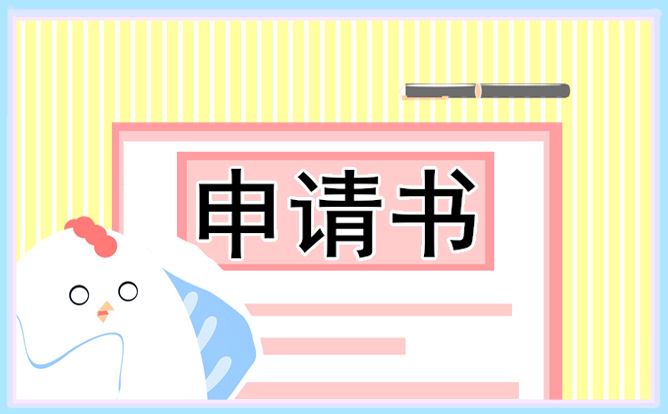2021社会学留学申请书
学生去国外留学,那么自身的英文程度就可以达到国内英语系毕业生的水平,实际运用的能力也会增强很多。你会写社会学留学申请书吗?这里给大家分享一些2021社会学留学申请书,欢迎阅读!

2021社会学留学申请书
Dear _,
The rapidly growing elderly population is becoming a serious social problem in many countries. Some countries have been successful at finding solutions for this problem but others have not. Japan is one of the latter countries. Although Japan has one of the highest life expectancy rates and a reputation for good quality of life for its elderly population, it has been unsuccessful at addressing this problem. Compared to other industrialized countries, Japan lags behind in programs for elders who are physically disabled, bedridden or in need of long term care. The current economic crisis is exacerbating this situation as the government is cutting funding for elder programs. This problem resonates deeply with me, and I hope to someday work on finding a solution. It is for this reason that I am applying to the graduate program in social work at Boston University: I seek the skills and knowledge I need to return to Japan and work for a social work service.
My interest in the elderly dates back to my childhood. Growing up with my grandparents greatly influenced my values and personality: they taught me to be self-motivated and disciplined. Their resilience and support has helped me to persevere even when confronted with seemingly insurmountable obstacles. Because of their kindness toward me I have a deep respect for them and for elderly people in general. This is what motivates me to become involved in the field of social work. Traditionally in Japanese society, the care of one's parents is believed to be the children's duty. After World War II, such traditions have evolved due to changes in family structure. No longer is the eldest child the only one to inherit his parent's property, and two-income families have become the norm. These changes have left Japanese people at a loss as to how to care for their aging parents. The current response to this problem seems to be hospitalization. Families increasingly hospitalize their elders who are physically disabled, bedridden or in need of long-term care. These individuals are usually transferred to nursing homes, but because of sparse accommodations and a one to two year wait list, they end up staying with family members who are often ill equipped to care for them. As a result, there are a number of incidences of elder abuse by family members and elder suicide. Also, there are many other elderly people who live alone--every year, many of them die with no one, not even their family members, having knowledge of their death.
Currently there is no social welfare program in Japan that offers assistance to these elders and their families. In the light of these terrible problems, the need for such a program is obvious. My interest in social work is to find ways to develop and improve the types of services available to the elderly in Japan at a systematic level. I want to be involved in the organizing, managing, developing, shaping and planning of social policies related to the elderly. I believe the social work program at Boston University will allow me to do that. By studying macro social work at Boston University, I will learn about established social systems, assessment and intervention strategies. In addition, Boston University's emphasis on urban issues appeals to me immensely. As I will be returning to work in Osaka, the second largest city in Japan, graduate work in this area will better equip me for the challenges I will be facing. To me, an urban mission is a commitment to identify and find solutions to issues faced by urban areas. I believe I am well prepared for graduate work.
During my undergraduate study, I acquired the necessary background knowledge by taking advanced courses in the areas of psychology and sociology, including sociological research methods, social theory, statistics, psychological research, and psychotherapy. Along with these courses, I had an internship at the Asian Task Force Against Domestic Violence, a non-profit organization. I also volunteered at Sawayakaen, a nursing service, and Asunaro Children's Mental Hospital in Japan. From this internship and my volunteer work, I have gained practical experience that I feel will contribute to my academic and professional success. I expect the graduate work at Boston University to be demanding, challenging, and ultimately rewarding. I look forward to the experience from an intellectual as well as social point of view--I hope to learn and grow as an individual and a macro social worker. I hope that I will be allowed to do so at Boston University.
Yours sincerely,
xuexila
瑞典留学要了解的常识
1、货币
瑞典克朗由国际货币符号SEK标示。一克朗为100分。有面额为20、50、100、500和1000克朗的银行纸币和面额为1、5和10克朗的硬币。所有的主要银行卡和信用卡在瑞典都广为使用。(1欧元=约9瑞典克朗)
2、药品
医院开的处方药可以在叫做“apotek”的药房领取。这种药房在正常购物时间都会营业。24小时营业的药房一般只有在大城市才有。如果你在服药,在前往瑞典前带足。
非处方药可能会在超市或加油站也有售。
紧急情况和紧急求助电话
如果发生紧急情况,请拨112联系警察、消防队或医院。在付费电话上拨打紧急电话是免费的。
3、ID卡
身份证或ID卡(瑞典语叫legitimation)是一张登记有持有人照片和人口号的卡。持有ID卡会有助于你与瑞典的任何国家机关打交道,也能让你在银行开户变得更容易。要获得瑞典身份证,你必须登记为瑞典居民(见上述民事登记部分)。
ID卡由瑞典税务局(Skatteverket)颁发的。关于如何申请获得ID卡,在这份瑞典税务局发布的PDF手册上(英文)可以获得详细信息。身份证申请费为400瑞典克朗。
另外学生还有学生卡,此卡能在你搭乘飞机、火车和汽车时享受折扣。你会在加入学生会一个月后收到此卡,收到卡的同时你也会获得更多详细的折扣信息。
瑞典留学住宿方式盘点
一、直接申请住校
大部分的学校,都是会为学生提供宿舍的选择的,而且中留学生又会有邮箱进行申请的资格,建议大家在拿到了录取的邮件之后,鞠志杰登陆进行申请表的填写,成功率很高。
宿舍一般的规模会比较小,大家的生活基本需求可以满足,而且租金会相对便宜,基本一个月的水电租金开销会集中在3000元左右,是比较适合学生的选择,而且整体环境也较为安全。
二、和朋友合租
当然大家还可以选择一起进行合租,在选择室友上,一定要特别的小心和谨慎,因为这会直接影响大家在这里的日常生活,一般建议选择熟人,因为这样至少会有基础的了解,也更好沟通。
合租的好处就是可以平摊所有的生活开销,大家的日常会有相对独立的生活,但是平时又能够互相帮助,适应新生活会更加有帮助,这种方式除了要承担房租外,还需要安排用水用电等开销,平摊大概3000-5000元之间。
三、与房东同住
寄宿也是一种比较常见的方式,这样大家有机会进入到本地的家庭中,生活会有人进行引导,这会是适合生活的自理能力比较差的学生的选择,因为能够为大家安排好生活。
提供寄宿服务的家庭,都是有机构进行统一的管理的,会审核资质,符合要求才可以接受留学生的申请,而且会受到比较严格的监管,如果有学生进行投诉,是会进行处罚的,租金在5000元左右。
四、自己住单间
还可以选择自己单独租一个房间,一室一厅厨卫齐全的单间,虽然价格会稍贵,一个月加上租金需要4500-6500元之间,但是个人会有完全独立的空间,生活不会有人打扰。
而且大家自由招待客人也不会有不方便的地方,还能够自己做饭节省餐饮费,也是比较热门的选择,不管哪一种方式都会有利有弊,大家根据自己的需求确认即可。
2021社会学留学申请书相关文章:




